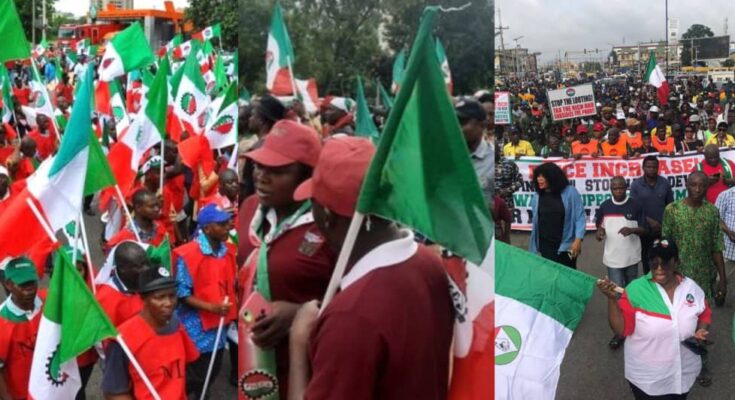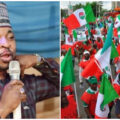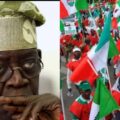Members of the Nigeria Labour Congress (NLC) have started their nationwide protests all over Nigeria as they request for 200 hundred thousand as minimum wage.
In a video, one of the protesters highlighted the challenges people face due to the rising cost of living and expressed concern about the number of people suffering from hunger and hardship.
They have asserted that they will continue their protests until this demand is met.
Two Hundred Thousand Minimum Wage
The protesters are heading to Abuja to engage in constructive discussions with the government and present their charter of demands, which includes the proposal for the national minimum wage to be set at N200,000, the restoration of the functionality of the four refineries, and the inclusion of labor representatives in the supervisory committee.
NLC Protest all over Nigeria
Thousands of workers, carrying placards, have assembled on the Federal Capital Territory (FCT) streets to participate in the demonstrations.
Protesters gathered at the Ikeja under-bridge in Lagos State to voice their grievances.
The NLC had previously issued a seven-day ultimatum to the government, threatening to carry out a nationwide strike beginning on Wednesday, August 2, 2023.
READ ALSO: Protest update: Heavy presence of security guard as Labour union members gather for protest
Protesters Pulls Down NASS Gate, Force Way Into Premises
In another news, During the protest in Abuja, the protesters forcefully entered the National Assembly (NASS) complex by breaking down the first gate and proceeding to the second gate.
Protesters from the Organised Labour, which includes the Nigeria Labour Congress (NLC), Trade Union Congress (TUC), and their affiliate unions, intensified their demonstrations on Wednesday against what they deem to be “anti-people” policies of the President Bola Tinubu administration.
They aimed to express their dissent directly to the lawmakers to do better and meet their demands.








